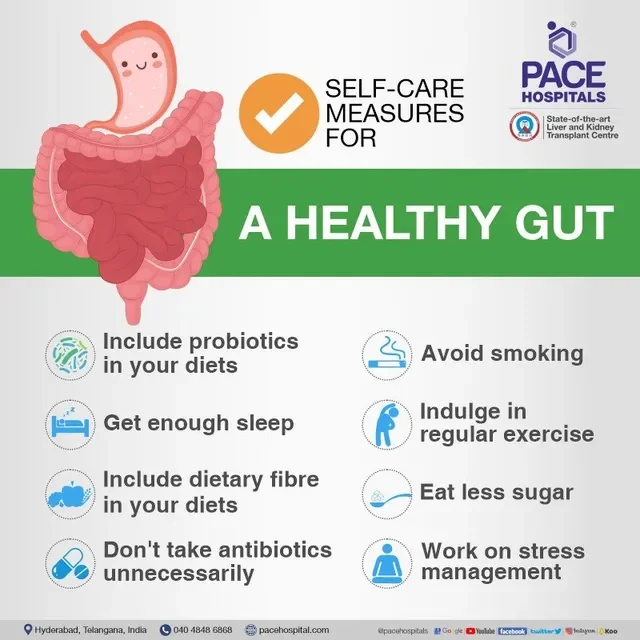How Gut Health Affects Your Skin: The Link Between Digestive Health and Inflammation
There’s a growing body of scientific research confirming what many of us intuitively know: your skin health is deeply connected to your gut health. At Fresh Aesthetics & Skin, we treat the skin in the wider context of the whole body, and one of the most important systems we consider in chronic inflammation, sensitivity, or rosacea is the gut–skin axis.
The Gut–Skin Axis Explained
Your gut and your skin are both barrier organs. Their job is to protect you from the outside world.
The gut barrier is made up of tightly connected intestinal cells that prevent unwanted substances (toxins, pathogens, allergens) from leaking into your bloodstream.
The skin barrier is your outermost layer of defence, protecting against environmental irritants and retaining hydration.
When the gut barrier becomes compromised or "leaky", it can trigger widespread inflammation, which is often manifested in the skin.
The Link Between Gut Dysfunction & Skin Conditions
Multiple studies have shown that gut inflammation and dysbiosis (imbalanced gut bacteria) are associated with common skin conditions, including:
Rosacea
Acne
Eczema
Psoriasis
Perioral dermatitis
In the case of rosacea, research has found a higher prevalence of small intestinal bacterial overgrowth (SIBO) and Helicobacter pylori infection in rosacea patients compared to the general population. Treating these gut conditions has been shown to lead to visible skin improvement in some individuals.
When the gut barrier is compromised, inflammatory molecules called lipopolysaccharides (LPS) can enter circulation. These molecules trigger the immune system and can contribute to facial redness, sensitivity, flushing, and inflammatory flare-ups.
Skin = External Barrier, Gut = Internal Barrier
Think of your gut as your internal skin barrier, and just like you wouldn’t ignore broken skin, it’s crucial not to overlook signs of gut dysfunction. If you’re treating persistent skin inflammation, but not supporting the gut, you're only addressing half the picture.
How to Support Gut Health for Better Skin
A multi-faceted approach works best. Here's how we recommend supporting your gut barrier, based on scientific evidence:
1. Prioritise a Whole-Foods, Anti-Inflammatory Diet
Include: Fibre-rich vegetables, fermented foods (e.g., kefir, sauerkraut), polyphenols (e.g., berries, green tea)
Avoid: Ultra-processed foods, excess alcohol, added sugars, emulsifiers, all of which can weaken the gut lining
2. Rebalance the Microbiome
Probiotics and prebiotics may help rebalance gut bacteria
Specific strains like Lactobacillus rhamnosus and Bifidobacterium breve have been studied for their benefits to both gut and skin
3. Support the Gut Lining
Supplements shown to improve gut barrier integrity include:
L-glutamine (an amino acid that fuels intestinal cells)
Zinc carnosine
Collagen peptides
Omega-3 fatty acids (anti-inflammatory and barrier-supportive)
4. Reduce Chronic Stress
The gut is directly connected to the brain via the gut–brain axis
Chronic stress impairs both gut and skin barrier function, practices like mindfulness, good sleep, and breathwork can have systemic benefits
5. Consider Testing
If rosacea, adult acne, or unexplained skin inflammation persists, referral for gut testing may be appropriate
Functional practitioners and nutritional therapists can work alongside skin clinics to target root causes
Skin Barrier Meets Gut Barrier: The Integrative Approach
At Fresh Aesthetics & Skin, we often remind patients that what happens beneath the surface of your skin is just as important as what we apply topically. When we address inflammation or barrier repair in clinic treatments, we also ask about:
Digestive symptoms (bloating, reflux, IBS)
Food triggers
Antibiotic history
Stress levels
For patients struggling with sensitive, red, or reactive skin, particularly rosacea, we may recommend a barrier-repairing skincare routine alongside gut support to get the best results—calming the skin from the inside and out.
Final Thoughts
Gut health and skin health are more connected than you think. If you’ve been treating skin issues topically with limited success, it might be time to consider what’s happening on the inside. By supporting both your internal and external barriers, you give your skin the best chance to heal, strengthen, and glow.




